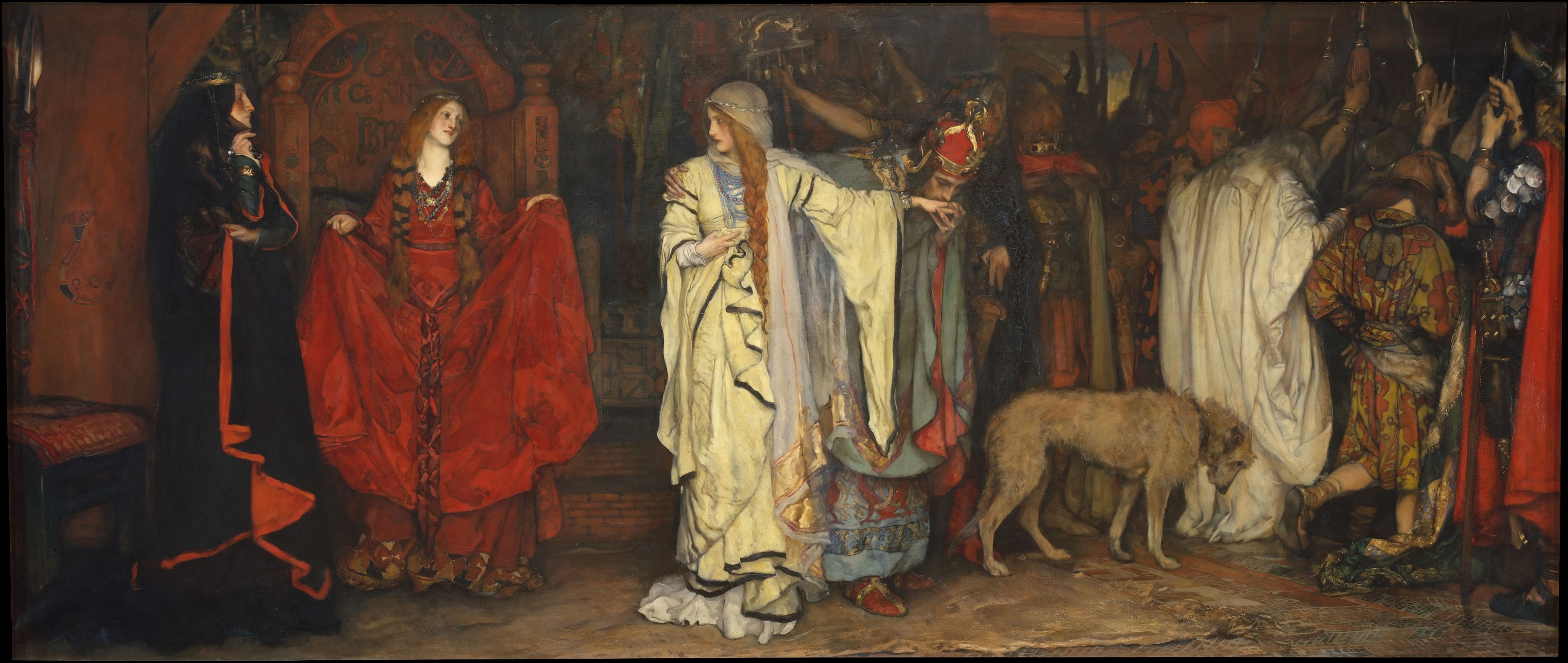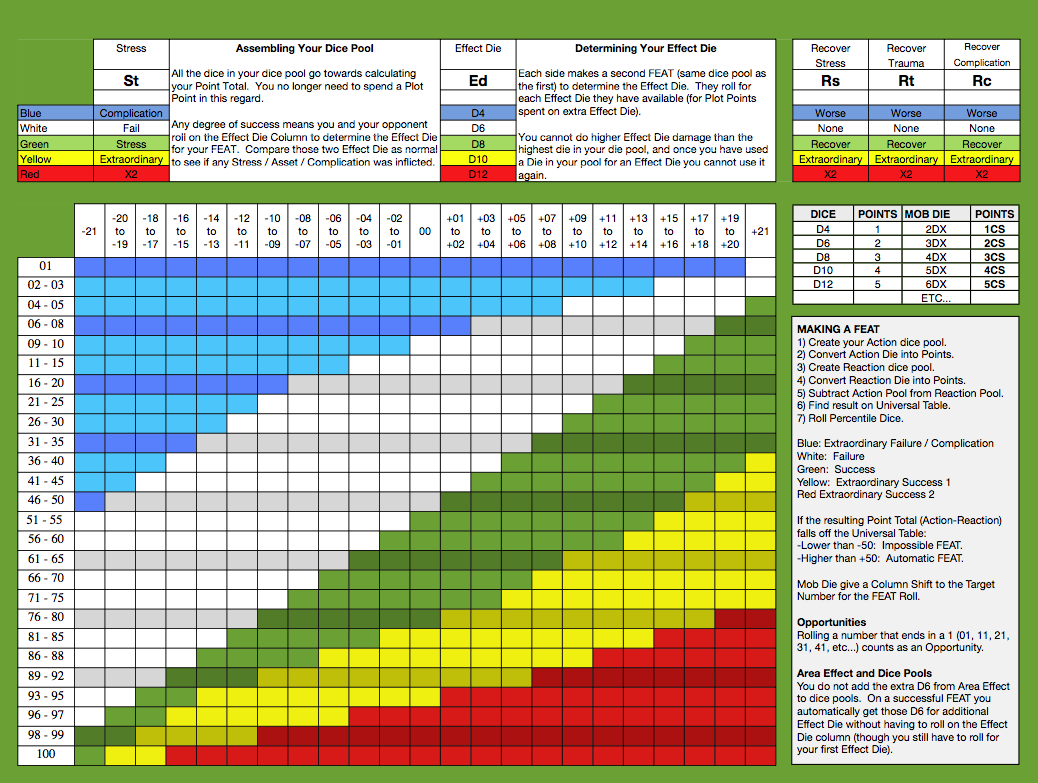First of all, I'd like to avoid any explanation that effectively dismisses the importance of the appendix N for now. Yes, I am aware that many people see the appendix N as nothing but a list of Gary's favorite books, that was written long after D&D, and surely there are gaming reasons for creating a game based on Howard's works without having Conan as the protagonist. Also, RPG are played in groups with many characters, and having one, or all of them, to be that special would detract from the experience, as well as making dangerous encounters almost impossible. This are all valid explanations for the reason why D&D characters don't look like some appendix N characters but, other than this paragraph, this isn't the point of this post. Instead, I'll start with the assumption that the appendix N is an important part of old school D&D.
Now, the Appendix N is quite extensive, and includes different types of books. There are few things one can say that will include every work in the list, and I must admit I haven't read all of it. So I'm going to focus on a few works, while recognizing that the rest might be different. Keep in mind that Gygax says that "the most immediate influences upon AD&D were probably de Camp & Pratt, R. E. Howard, Fritz Leiber, Jack Vance, H. P. Lovecraft, and A. Merritt".
If you analyse the main characters in the Appendix N, you'll see that many of them can be inserted into one or more of the following types:
| The quintessential Hamlet: no relation to Conan at all. |
Type A characters are true protagonists, or "alphas". They are the center of attention (or ate least a significant part of it) in their own stories; they have conflicting motives, a rich inner world, they experience growth and development, perdition and redemption, etc. Characters such as Boromir, Frodo, and some others from the Lord of The Rings are in this category, as well as Elric (Moorcock) and some characters from Roger Zelazny (or so I'm told...). Popular examples outside of the appendix N would be Hamlet, Othello and other Shakespearean protagonists, or modern characters such as Tony Soprano and Walter White. Compare those to Conan and you'll see that the barbarian is quite shallow, relatively, although he has his moments.
Type B characters are badass; they are stronger, smarter and just above ordinary men in almost all circumstances. Conan and Elric are the main examples, but most of other works that feature men from Earth going to a different time or place make them very powerful and nigh-invincible too (John Carter and other characters from Edgar Rice Burroughs, pulp-era heroes, etc). Other figures are incredibly powerful wizards and mythical beings, such as Rhialto (Jack Vance) and Jack of Shadows (Roger Zelazny).
 |
| By Frank Frazetta. Of course. |
Type C characters are "picaresque" (or Cugel-like, for lack of a better C-word). This Wikipedia snip is extremely relevant (emphasis mine):
According to the traditional view of Thrall and Hibbard (first published in 1936), seven qualities distinguish the picaresque novel or narrative form, all or some of which may be employed for effect by the author. (1) A picaresque narrative is usually written in first person as an autobiographical account. (2) The main character is often of low character or social class. He or she gets by with wit and rarely deigns to hold a job. (3) There is no plot. The story is told in a series of loosely connected adventures or episodes. (4) There is little if any character development in the main character. Once a picaro, always a picaro. His or her circumstances may change but they rarely result in a change of heart. (5) The picaro's story is told with a plainness of language or realism. (6) Satire might sometimes be a prominent element. (7) The behavior of a picaresque hero or heroine stops just short of criminality. Carefree or immoral rascality positions the picaresque hero as a sympathetic outsider, untouched by the false rules of society.[1]
Sounds familiar? For many people, this describes most characters they have ever had in any RPGs; the popular "murder hobos". It also describes Cugel, Fafhrd, the Gray Mouser, and Conan to some extent.
For further Reading, see what James Maliszewski and Zak S have to say about the subject. They said it first, they probably said it better, and you should read it if you haven't yet.
Type D characters are disposable, or replaceable, as in "not recurring" or "not that important"; they appear once in a short story, and they're gone. Sometimes, they have no special characteristics at all - they are portrayed as the "homo medius", the average, reasonable, American (or English), middle aged man. Often. they are adventures, scientists, scholars and explorers, and the stories focuses on their exploits and findings, not on their inner selves. They might be in longer stories, but they are not the focus of it. The works of Merrit, Lord Dunsany, and H.P. Lovecraft usually fall into this category. These characters are often not special by themselves, but because of the strange or bizarre circumstances that they face. They have no "character arcs" or anything similar.
| By Sidney Sime, the original old school artist, illustrating a story by Dunsany. |
Compare, for example, E. A. Poe to H. P. Lovecraft; even with numerous exceptions, we can say that many of Poe's characters put themselves in hideous circumstances for personal reasons (of madness, revenge, etc) while Lovecraft's characters are threatened by supernatural forces that are greater than they can comprehend, by accident, ignorance or through no fault of their own.
Now, look at the appendix N again and I think you'll agree with me: most of the main characters in the Appendix N (and specially in the "most influential" list) are often uninteresting when compared to their surroundings. In fact, Type A, "Shakespearean" characters are the exception and not the rule. Badass characters are common, but often shallow and "picaresque" in most aspects. "Disposable" characters are obviously not special by themselves.
Yes, many of these characters are awesome, but we don't care much about their inner thoughts and feelings, or even about their backgrounds (what they did before their adventures), that are often reduced to a few sentences or paragraphs. How much did Howard write about Conan's issues with their parents, for example?
Instead, we want to see the strange lands these characters explore and the bizarre monsters they encounter. Even when Fafhrd (a barbarian somewhat reminiscent of Conan) becomes an ascetic and gives up drinking and women, there is little character development, and he ends up quite unchanged. Elric has a few great moments, I'll admit, and even Conan has to face some philosophical dilemmas ("The Phoenix on the Sword"), but the focus is still on their surroundings most of the times - or at least this is what Gygax used when building D&D.
Instead, we want to see the strange lands these characters explore and the bizarre monsters they encounter. Even when Fafhrd (a barbarian somewhat reminiscent of Conan) becomes an ascetic and gives up drinking and women, there is little character development, and he ends up quite unchanged. Elric has a few great moments, I'll admit, and even Conan has to face some philosophical dilemmas ("The Phoenix on the Sword"), but the focus is still on their surroundings most of the times - or at least this is what Gygax used when building D&D.
Old school games are not ideal to portray characters with deep inner struggles; try reading some Robin Laws ("Hamlet's Hit Points") or some modern game instead. My own RPG, Days of the Damned, is quite focused on character development, including extensive treatment of damnation, redemption and sacrifice, things that are not often seem in most old school games I have played.
 |
| Elric, by Rick Troula. |
I'm not opposed to character development, even in old school games; I think it is one of those things that will happen naturally to some players and some characters, but you shouldn't try to force it through elaborate backgrounds or dedicated mechanics. Charachter development is part of "story", and forcing it might detract from the actual experience.
There might be some points to be made about "special" characters not being ideal to playing in groups, as they are lone wolves or get all "character spotlight" to themselves; and that playing characters with deep, conflicting motivations not being to everyone's tastes (and probably difficult to beginners); and "badass" characters existing just because death would put a halt to their explorations; and being badass because of what they DO, not because of who they ARE (no prophecy saying Conan will save the world from darkness, his stories are told in retrospective, etc); but this post is already too long as it is.
In short, I still think that there is enough stuff in the Appendix N to justify saying that D&D characters shouldn't be special, at least when they start adventuring, but I must admit that the Appendix N is ultimately a list of Gygax's favorites, and whatever game style you choose will also be dependent on your own preferences.
Once more, this is one of the things you should experience to see if you like or not. Keep an open mind about your starting character; see where Fate will take her, and don't be afraid to take matters into your own hands, but remember what happens to the best laid plans of mice and men...
Once more, this is one of the things you should experience to see if you like or not. Keep an open mind about your starting character; see where Fate will take her, and don't be afraid to take matters into your own hands, but remember what happens to the best laid plans of mice and men...
One of the proposed motes for old school gaming is "we explore dungeons, not characters" (I'm not sure about the source). I'm not that enamored to dungeons, so I would use "worlds" instead, but the focus on outer exploration feels right. Maybe add a word or two to make clear that the we do this stuff with others, as a group, not focusing on the inner struggles of each single characters.
So, maybe:
Old school gaming: Together, we explore worlds.
So, maybe:
Old school gaming: Together, we explore worlds.
Not my finest idea, but I guess that will have to do until I find a better catchphrase.



